On the eve of this year’s CinemaCon (April 8-11), Screen International previews what many feel will be an uneven year for North American cinemas.
“Hang tight and get to 2025,” seems to be the mantra in Hollywood as the industry prepares for the CinemaCon trip to Las Vegas (April 8-11) after an underwhelming start to the year at the North American box office. Ongoing fallout from last year’s dual Hollywood strikes has resulted in an uneven release calendar bearing the scars of delayed production and postponed releases. What also adds to a sense of caution are lingering concerns about older audiences not returning to theatres, compounded by a cost‑of-living crisis.
After a largely barren first two months, with the exception of Paramount’s Bob Marley: One Love and ongoing holdover business from Warner Bros’ December 2023 release Wonka (pushing the latter past $200m), March showed glimmers of hope at the North American box office.
Dune: Part Two — itself postponed from last November in order that stars Zendaya and Timothée Chalamet would be free to promote the film after the SAG-AFTRA work stoppage — delivered a stirring $82.5m opening weekend for Warner Bros/Legendary Entertainment and at time of writing stood at more than $233m by March 24. Complementing that was a $57.9m launch for Universal/DreamWorks Animation’s Kung Fu Panda 4, which marked the second-highest debut in the franchise since the 2008 original’s $60.2m. The total for Kung Fu Panda 4 at press time was $133m.
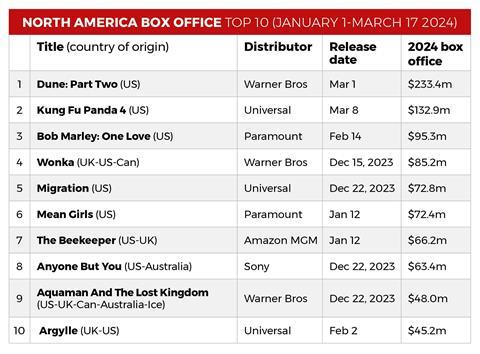
Sony’s Ghostbusters: Frozen Empire opened on March 22 with $45.0m in North America, pushing the 40-year franchise past $1bn globally, and Warner Bros/Legendary’s Godzilla X Kong: The New Empire followed in cinemas a week later.
April brings Guy Ritchie’s The Ministry Of Ungentlemanly Warfare through Lionsgate, Amazon MGM Studios’ strike-delayed, R-rated sports romance Challengers starring Zendaya, and Alex Garland’s apocalyptic thriller Civil War at A24, among others.
By the time summer arrives on May 3 with Universal’s seasonal opener The Fall Guy, starring Ryan Gosling and Emily Blunt, all eyes will be on how this year is faring against the comparable period of 2023. As of March 24, North American box office trailed 2023 by 8.7%, propped up somewhat by Dune: Part Two but in general suffering from comparisons to a big first quarter in 2023 buoyed by a long tail on December 2022 release Avatar: The Way Of Water.
Supply is still lacking. After Hollywood and the global industry seemed to be getting back on their feet following the pandemic, the Writers Guild of America and SAG-AFTRA went on strike last summer, effectively halting studio production for six months.
The spectre of industrial action has not gone away entirely. After the writers, actors and directors eventually agreed on new contracts, the below-the-line unions are starting their negotiations with studios and streamers; IATSE’s contract expires on July 31. Barring another strike, the goal is to slowly and surely build back the Hollywood pipeline to where it was pre-Covid. There were 95 wide releases in more than 2,000 locations in 2023 and Comscore Box Office Essentials estimates there will be 105 this year.
Drawing audiences
The Oscars success of Christopher Nolan’s 2023 box-office smash Oppenheimer at Universal and a host of other titles backed by theatrical distributors were a huge source of pride to studio executives. They firmly believe that compelling films backed by strong marketing campaigns will continue to draw audiences.
Last year registered $9.05bn in North American ticket sales (against a long-term decline in admissions, partially disguised by rising ticket prices) and the consensus among Hollywood sources who spoke to Screen International is that this year could finish anywhere between $8bn and $8.5bn, which would close between 6% and 11.5% down on 2023.
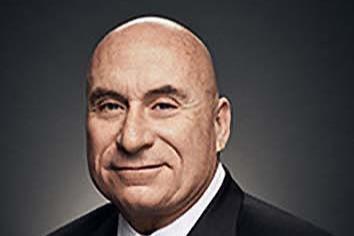
“The lack of product in the first couple of months of the year has depressed the box office,” says Jim Orr, president of domestic theatrical distribution at Universal, who nonetheless notes “we are definitely starting to see some momentum” after Dune: Part Two and Kung Fu Panda 4. “There are big titles throughout the rest of the quarter and throughout the rest of the year that make us optimistic.”
Universal is on a tear after overtaking Disney in the 2023 studio share rankings and garnering seven Oscars for Oppenheimer. Highlights from its upcoming pipeline are David Leitch’s stuntman action comedy The Fall Guy, Despicable Me 4 on July 3, Twisters (July 19 — Warner Bros holds international rights) starring fast-rising idol Glen Powell, whose 2023 Sony romantic comedy Anyone But You with Sydney Sweeney has earned the bulk of its $88m North America gross this year, and Jon M Chu’s adaptation of stage smash Wicked with Cynthia Erivo and Ariana Grande. The latter arrives in November and Orr predicts “will have people talking about it for months afterwards”.
The value of offering something for everyone is top of mind these days. “That’s incredibly important for moviegoing health overall,” Orr says. “We’ve managed to do that through our relationships with our partners including Christopher Nolan, which allows us to bring in a very broad audience.”
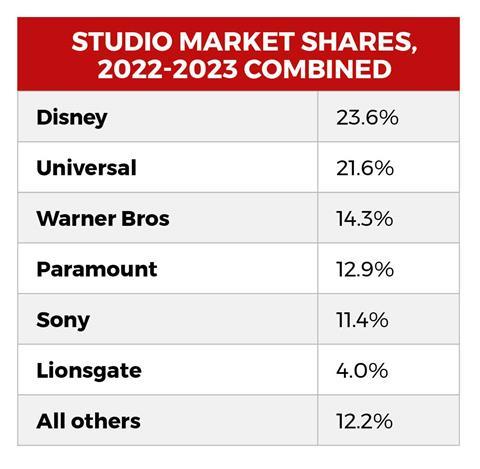
Oppenheimer’s $329m North American box office and its $960m worldwide total compares well to the respective $636m and $1.45bn grosses achieved by Warner Bros’ Barbie, and shows, distribution executives argue, that audiences will expand to accommodate great stories.
“The audience is out there when we deliver top-quality entertainment,” agrees Jeff Goldstein, Warner Bros president of domestic distribution, who touted Barbie at CinemaCon last year alongside international distribution president Andrew Cripps, both decked out in pink suits. “It showed that a far broader audience than even we imagined turned up. The same with Oppenheimer.”
The Warner Bros executive is “feeling very optimistic” about the year ahead. He expects Dune: Part Two to get to $600m worldwide and Wonka $650m. Coming up on the Warner Bros slate are George Miller’s Furiosa: A Mad Max Saga on May 24, and Beetlejuice Beetlejuice starring Michael Keaton and Catherine O’Hara from the 1988 original on September 6. October 4 brings Joker: Folie À Deux, the sequel to 2019’s billion-dollar global hit that sees Oscar-winner Joaquin Phoenix reprise his titular role opposite Lady Gaga as Harley Quinn.
The pipeline also includes the bifurcated Kevin Costner western Horizon: An American Saga, whose two chapters open on June 28 and August 16. “It’s a gamble and we hope it pays off,” says Goldstein. “We have a great movie which will play across the country and to Kevin’s fans and the Yellowstone audience, who have been used to tuning in for successive instalments of that show and kept coming back for more.”
Plex landscape
The health of the exhibitor chains, of course, is critical to the success of the broader theatrical business, and the commonly held view among Hollywood executives is the larger circuits need to divest themselves of screens in a saturated market in order to operate efficiently.
Cineworld — which owns Regal, the second-largest circuit in the US — has emerged from bankruptcy and reorganisation with less debt and is now led by former Cinepolis president Eduardo Acuna. He has invested in the multi-sensory 4DX technology of South Korea’s CJ CGV chain and has spoken confidently about the future.
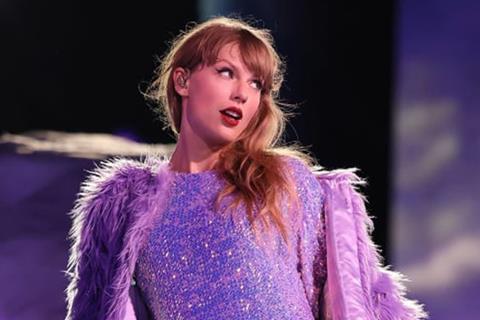
Speculation continues to surround the fate of the world’s largest chain AMC Theatres, which remains saddled with debt as it tries to recover from prolonged closures during the pandemic, as do all circuits. Yet the company, led by CEO Adam Aron, just reported strong financials in its fourth quarter and full-year earnings in February. He attributed “literally all” of the fourth-quarter revenue gain to the releases of Taylor Swift: The Eras Tour and Renaissance: A Film By Beyoncé.
The exclusive concert film releases were a success — The Eras Tour earned an eye-watering $180m in North America and more than a quarter of a billion dollars worldwide, and in mid-March became the most popular music film ever on Disney+ with more than 4.6 million views (16.2 million hours viewed divided by the 3.5 hours runtime) in its first three days.
AMC is not stopping there. The circuit and Blumhouse screened recent horror hits from Jason Blum’s genre powerhouse at more than 100 locations over Easter weekend; and Aron is partnering with NBC to broadcast select live Summer Olympics coverage from Paris in 160 sites from July 27 to August 11.
Neon, the nimble distributor/producer behind Justine Triet’s Oscar-winner Anatomy Of A Fall, has just partnered with Ken Kao’s Waypoint Entertainment, one of the companies behind Yorgos Lanthimos’s The Favourite, on a slate of $10m-plus larger titles which they say “often get overlooked by studios and streamers”.
The hope is that initiatives like these will at least complement studio offerings, perhaps filling some of the gap left by the aforementioned streamers, whose theatrical distribution strategies are varied and inchoate.
It remains to be seen what the strategy is at Amazon MGM Studios, under head of film and former Warner Bros executive Courtenay Valenti, after the company pledged in late 2022 to spend $1bn a year on 12-15 theatrical releases.
Eyes are also on where Apple Original Films goes beyond the upcoming films it has announced. The company was understood to be investing roughly the same annual amount in theatrical as Amazon, only to deliver a sub-$50m box office misfire with Matthew Vaughn’s spy thriller Argylle (with theatrical partner Universal), an underwhelming $68m box office for Martin Scorsese’s Killers Of The Flower Moon (with Paramount), and $62m for Ridley Scott’s Napoleon via Sony. Overseas numbers are higher for all three titles, and the combined global gross is $473m.
Meanwhile Netflix executives have made it clear they have little interest in supporting their films with substantial theatrical releases, preferring to bring new titles directly to their subscribers.
Diverse slates
The onus remains more than ever on the core theatrical players to lure audiences with a steady stream of appealing features. As Comscore senior media analyst Paul Dergarabedian puts it, the strikes created an uneven calendar with little by way of big hits. “This is a momentum business,” he says. “You’ve got to keep people in the theatre exposed to in-theatre marketing and trailers, which ensures they keep going to the movies.”
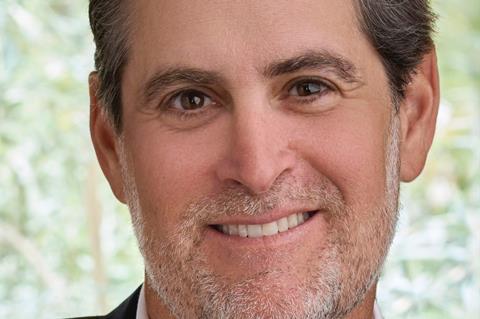
“The challenge that we all have is getting audiences out to see your content and making it a great theatrical experience,” notes Kevin Grayson, Lionsgate president of domestic distribution, motion picture group. “There are companies that focus their attention on tentpoles and that’s fantastic and good for the business. But what we offer is a wide array of content in the horror, faith-based, genre and tentpole business.”
Lionsgate is coming off the back of 2023 hits John Wick: Chapter 4, which earned $187m in North America and $440m globally, and The Hunger Games: The Ballad Of Songbirds & Snakes on $166m domestic and $337m worldwide.
The studio prides itself on the range of its films. It will open Guy Ritchie’s The Ministry Of Ungentlemanly Warfare and faith-based drama Unsung Hero from its relationship with Kingdom Story Company — both in April. It has been a distributor of faith-based films for some time, and few doubt what the genre can do after Angel Studios’ Sound Of Freedom broke out last summer, grossing $184m in North America.
Lionsgate opens Saw XI on September 27 after the 10th episode earned a solid $54m in North America, and Kingdom Story Company’s The Best Christmas Pageant Ever starring Judy Greer on November 15. The pipeline includes The Crow reboot starring Bill Skarsgard and FKA Twigs on June 7, and Eli Roth’s video-game adaptation Borderlands on August 9.
Among the year’s other anticipated releases are Kingdom Of The Planet Of The Apes (May 10), Inside Out 2(June 14), Deadpool & Wolverine (July 26) and Mufasa: The Lion King (December 20) from a Disney fold overseen by CEO Bob Iger, who has mandated a focus on fewer, higher quality films after a relatively disappointing 2023.
Paramount releases Gladiator 2 and Sonic The Hedgehog 3 on November 22 and December 20 respectively. Sony, meanwhile, has Bad Boys 4 on June 7, Kraven The Hunter on August 30, Venom: The Last Dance on October 25, Karate Kid on December 13, and two films with Apple — an untitled Scarlett Johansson/Channing Tatum film on July 12, and Wolfs with George Clooney and Brad Pitt on September 20.
On balance, executives acknowledge there are some attractive propositions at the 2024 box office and everybody knows there will be hits… and misses.
Next year is the promised land, when it is hoped the industry and economic tremors will have abated somewhat. An enticing roster includes the latest Jurassic World and Wicked: Part Two from Universal; Captain America: Brave New World, a live-action Moana and Avatar 3 from the Disney fold; Lionsgate’s Michael Jackson biopic, John Wick spin-off Ballerina and Good Fortune with Keanu Reeves; Mission: Impossible 8 and The Smurfs Movie from Paramount; Minecraft and Bong Joon Ho’s Mickey 17 from Warner Bros; and Paddington In Peru from Sony.






![The Brightest SunScreen[Courtesy HKIFF]](https://d1nslcd7m2225b.cloudfront.net/Pictures/274x183/3/5/0/1448350_thebrightestsunscreencourtesyhkiff_312678.jpg)



















No comments yet